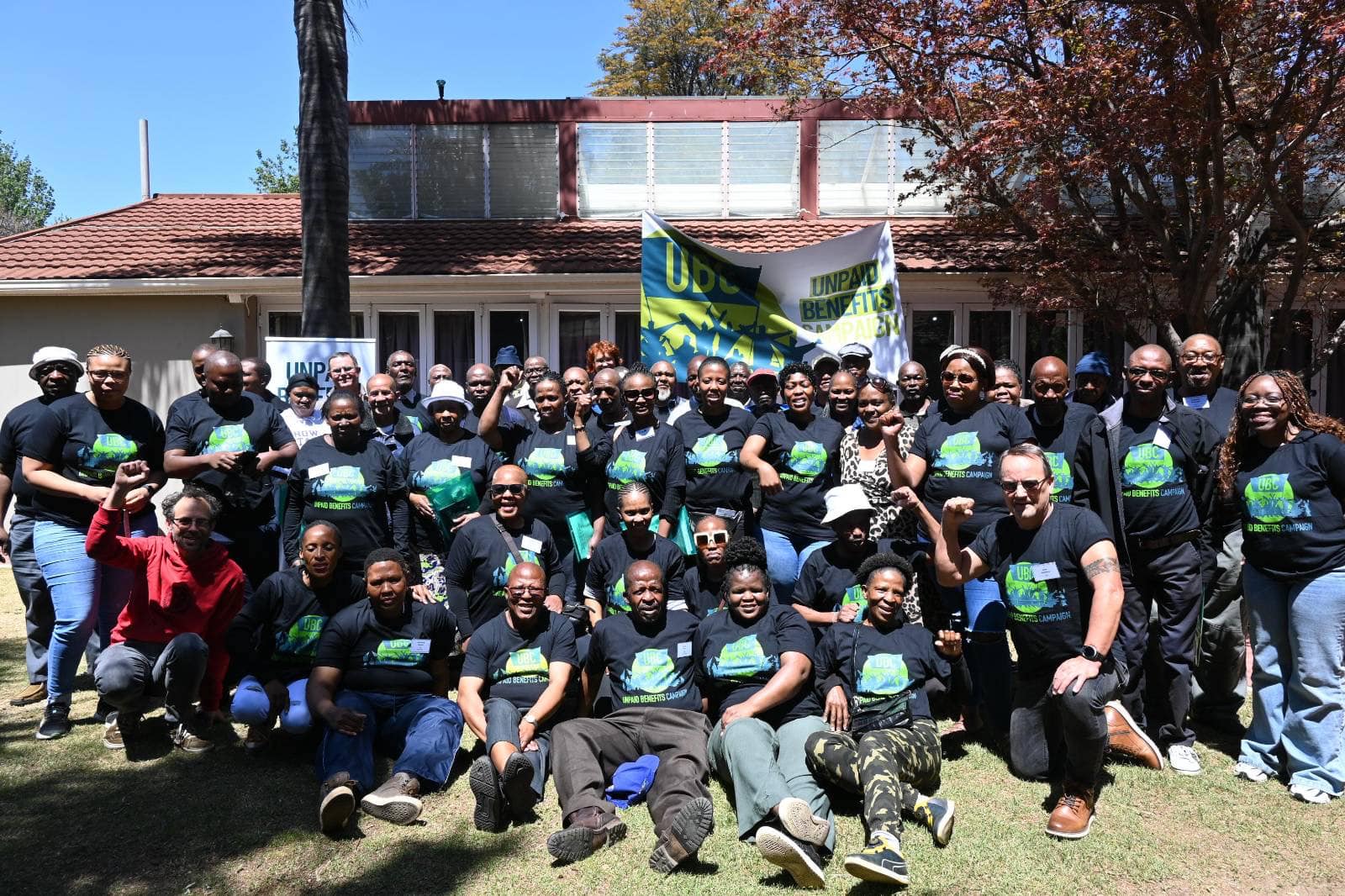Last week, the Unpaid Benefit Campaign, sat for a three-day meeting from 4-6 October 2024, in Boksburg. The event was attended by around 70 ex-workers who ate stakeholders to a reported value of R80 billion in “unclaimed” benefits sitting with various finance institutions. Dr Dale McKinley, one of the organisers of the event together with Open Secrets, advised that the money owed to several millions of people formerly employed in South Africa wasn’t “unclaimed” but rather unpaid.
The programme of the meeting entitled, ‘The Crisis of Unpaid Benefits: Cause, Consequence and Correction’, pulled together former workers owed benefits and who are members of UBC, from across South Africa, but its panel featured former Financial Sector Conduct Authority (FSCA) deputy registrar of the pension funds, Attorney Rosemary Hunter, Ariella Scher from Open Secrets, Pension Justice’s Hannine Drake who has a strong sense of justice often practicing pro bono, but Bricks Moloko from the Orange Farm Human Rights Advice Centre could not make it.
The focus of the meeting was to answer three main questions, investigating how the unpaid benefits crisis emerged, the causes of the crisis: History? Racial capitalist? Poor record keeping? And where to attribute the blame, during day 1.
The organisers sent invitations to fund administrators, government departments, unions representatives, NGOs and ex-worker collectives. Of over eight government departments and as many fund administrators and asset managing institutions such as Old Mutual, Sanlam, Alexander Forbes etc., invited to attend and give responses, all failed to send any representatives, only Liberty and the Department of Health managed to send representatives.
Hunter says that claiming benefits is difficult for ordinary people, even where knowledge about a benefit exists, people usually do not have enough means to enforce their rights. “Pension fund exists for members, but works drastically against members,” she said.
Drake noted challenges facing claimants including access to banks, lack of bank accounts, and a lack of pension benefit education. Not aware of existing benefits, some workers leave South Africa, especially those coming from beyond the Limpopo. There is a limited access to information too, but many of these could be cured from the side of the worker. Drake pointed out that “there are inherent conflicts” in the system.
According to the pension fund counsel, asset managers and fund administrators are conflicted parties in the payment of claims. She said that asset managers are paid for the value of assets they manage while fund administrators are paid per member under them. This means payouts reduce the value of the assets and the number of members to funds, resulting in less pay.
Other problems derive from the lack of an adjudicator for pensions, well until the 1990s, Drake observed. Employers also contribute towards funds for all the workers, but did not provide the complete details for each worker. They usually only gave the worker’s name, and the amount contributed, this means there were no identity numbers linked making claims difficult. Today at least, regulation 33 demands employers also provide the identity number, the address and the tax number of the fund beneficiary. Human Resource managers are required to help workers know.
“Between 2007 and 2013, that there were 6000 pension funds had been cancelled when most of them still had some form of asset, even if that asset was, as Rosemary had explained, one insurance policy, but it remained quite a valuable asset in many instances,” said Scher, before continuing, “most of those cancellations had been done by people who were seriously conflicted.” Other issues were because a lot of the beneficiaries dated back many years, “often the beneficiaries were not aware of what was happening”, sometimes because they did not know what funds they were members of.
In dealing with the conduct of the pension fund administrators, the FSCA released a new circular, which asked the pension fund administrators to make court applications to re-register the cancelled funds, in that way making the remedy a voluntary action instead of compelling them.
There is another concern with the individuals working at the FSCA and the Financial Services Board (FSB), which is the fact of the “revolving door” between big business and government institutions that must regulate and where necessary, penalise them.
People from the floor explained the difficulties they have had with making claims. One participant simply called Moses said, “With umbrella funds, you have no rights, it is run like a mafia [organisation]”.
Some participants showed worried. Sello Mokoena reminded the meeting that there was a newer scandal exposed by the recent ‘two-pot’ system which allowed workers to withdraw part of their pension benefits. Mokoena said that 22% of companies failed to pay to the Unemployment Insurance Fund, leaving their workers uncovered despite making monthly deductions.
Some of the stories are contained in The Bottom Line, ‘an Open Secrets Investigation’ and in a booklet Reference Book which “details Open Secrets’ findings after a year-long investigation into the South African pension fund industry, unpaid benefits, and the unlawful cancellation of hundreds of pension funds.”
This article was submitted on 05 October 2024. You may republish this article, so long as you credit the authors and Karibu! Online (www.Karibu.org.za), and do not change the text. Please include a link back to the original article.


 Download PDF
Download PDF